






































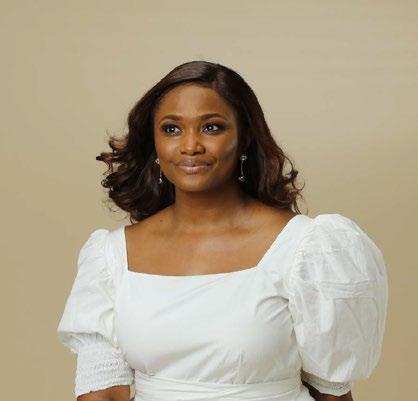
OnahNwachukwu Editor, THEWILL DOWNTOWN
This week, our cover story shines a spotlight on the remarkable achievements of Nigerian celebrities born in October. These stars, who have left an indelible mark in the entertainment industry, make October a month of celebration. Their talent and creativity, from award-winning acting to chart-topping music, have inspired millions and shaped Nigeria’s cultural landscape.










These October-born celebrities have not only influenced Nigeria’s cultural landscape but have also captivated audiences worldwide with their enthralling performances and revolutionary music. Their global recognition and the space they have carved in the hearts of fans across the globe make them true household names. This is our chance to honour their achievements and appreciate their contributions to the Nigerian entertainment industry.
Read the stories of October babies Dakore Egbuson-Akande, Regina Daniels, Ice Prince, Wande Cole, and Mike Godson on pages 8 through 10.
Bubble skirts are in fashion and are a fun way to add drama to your outfit. Styling a bubble skirt can seem complicated, so we have listed six ways to wear it on our fashion pages. See pages 4 and 5.
They say less is more when it comes to skincare and makeup. A tinted moisturiser, which combines both, can achieve this. Our beauty page explores reasons why a tinted moisturiser should be your go-to beauty product. You can find this on page 12.
Have you ever heard of beige flags in relationships? We tell you all you need to know about this kind of flag in Downtown Confidential this week. Please read about this on page 15.
Until next week, enjoy your read.







SUNDAY, OCTOBER 20, 2024 THEWILL NEWSPAPER • www.thewillnews.com





SUNDAY, OCTOBER 20, 2024



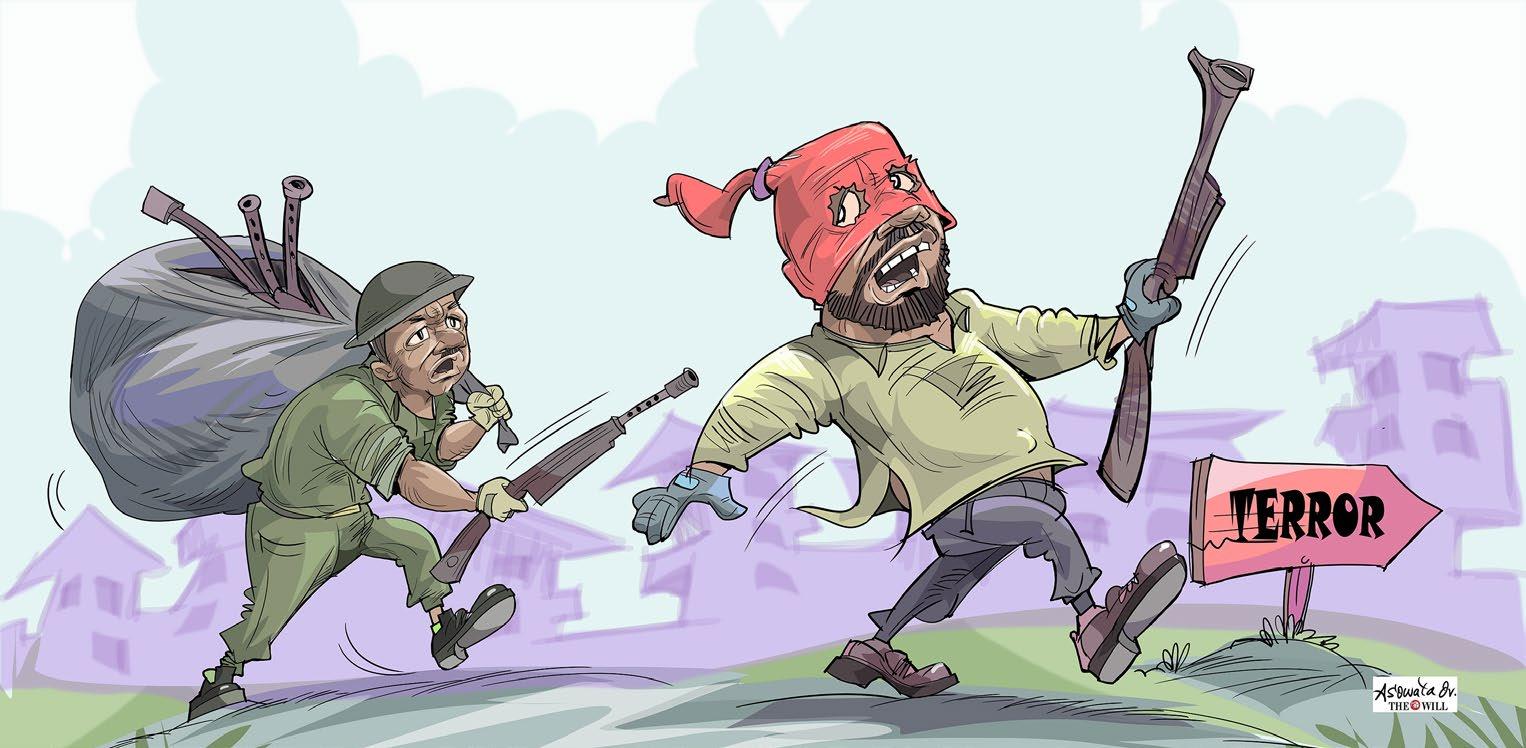
BY AMOS ESELE
Nigerians have become accustomed to reports of military and policemen, as well as influential persons, being accused of supplying weapons to terrorists in the country since Boko Haram insurgents gained global notoriety with the kidnapping of over 276 schoolgirls in Chibok, Borno State, northeastern Nigeria in April 2014.
Prior to that incident, former President Goodluck Jonathan even claimed that some members of his administration and the security agencies were sympathisers of Boko Haram. At the time, the Nigerian Army reportedly tried some generals accused of sabotaging the fight against insecurity. But none of the interventions was as frontal and indicative as last Thursday's revelation by the National Security Adviser, NSA, Nuhu Ribadu, when he said that corrupt security agencies were selling weapons belonging to the Federal Government to terrorists and other criminals.
Condemning military and police personnel involved in such sordid deals, the NSA said, “The worst human being is a policeman or soldier who will take arms from his own formation and sell them or hide them out for bad people to come and kill his own
colleagues.”
Ribadu, who made this disclosure during the Arms Destruction Exercise organised by the National Centre for the Control of Small Arms and Light Weapons (NCCSALW) Office of the National Security Adviser (ONSA) at Muhammadu Buhari Cantonment Giri, Abuja, warned: “We have to find a way to stop this. We must put an end to it, if we want to recover our country and live in peace and stability.”
Although the NSA boldly identified the problem, he offered no solution and instead threw a challenge to everyone, saying, “We have to find a way to stop to this…” even as he gave the assurance that the Federal Government would do everything possible to ensure the country is safe, peaceful and secure.
“This is sabotage of the highest kind,” Mr Joshua Ogunmola, a retired military officer who now runs a security outfit known as G4S, told THEWILL on Friday: “I was in the military and once fought in the North-East. I know from my training that I should not and I can never do anything that will put the lives of my brother at arms in jeopardy. As a matter of fact, I took an oath to lay down my life in defence of the
territorial integrity of our country and by extension the lives of my compatriots. What the NSA said shows that the fight against insecurity will take longer than necessary. This act of sabotage is also not good for the mental health of everybody in the society.
“Insecurity plays out dynamically in society. In Nigeria, there was a time when the greatest crime in the country was burglary. Then it became armed robbery and later, highway robbery, advance fee fraud and now, kidnapping, banditry and so on. These are the outcomes of such acts of sabotage that the NSA disclosed.”
Also, Shehu Sani, a rights activist and former senator from Kaduna State, in a tweet on Friday, said, “The revelations reportedly made by the NSA Ribadu that most of the arms used by bandits and terrorists in Nigeria were sourced from some collaborating security agents is a strong evidence that our security challenges are reinforced and sustained by rogue elements within our security and defence services.”
AN UGLY PAST
In truth, the allegation that some unscrupulous

While parading the suspect in Gusau, the Zamfara State capital, the Police Public Relations Officer in Zamfara State, SP Mohammed Shehu confirmed that Lawal was arrested on his way to supply weapons to bandits terrorising communities in Zamfara State.
Similarly, a National Security and Civil Defence Corps officer, identified as ACS II Maikano S/Tasha, was reportedly caught alongside others with a large cache of ammunition, including AK-47 and antiaircraft bullets, as well as illicit drugs, a fortnight ago
According to the Commissioner of Police in Zamfara, Mohammed Shehu Dalijan, Maikano had been arrested two years earlier, but he was released. Dalijan gave the assurance that this time around, Maikano would not evade justice under his watch. “These corrupt practices among the security agencies have progressively impacted the military institution and personnel with the consequent erosion of public trust in security agencies. This can lead people to resort to self-help in security matters,” Executive Director of Rule of Law and Accountability Centre, RULAAC, Okechukwu Nwaguma told THEWILL on Friday. He further said, “These activities will continue to undermine community cooperation with law enforcement efforts. Citizens will be very unlikely or hesitant to report suspicious activities or collaborate in security initiatives.”
Ogunmola of G4S Security added, “That is why I said the fight against insecurity will not end soon. Those at the war front are gradually being degraded by these acts of sabotage. I know because I was once in the theatre of war in the North-East. Morale will be at its lowest ebb when you know that the weapons you ought to use are being stolen and given to terrorists to
‘I am sure you know that some terrorists were granted pardon and were reunited with their families. About

Edward Buba, the ex-soldier who was dismissed from the 5th Brigade, Damasak, was arrested on July 23, 2023 at Boi in Bogoro Local Government Area of Bauchi State.
Other military kits recovered from the culprits were Nigerian Merchant Navy ceremonial dress with peak cap, 4 Navy uniforms, 3 ranks, 3 badges, 14 mobile phones, 3 ID cards, one camel bag, 4 military boots, one jack knife, 2 camouflage vests, 2 fragmental jackets, 2 military belts, one pistol holder and some documents, 1 Jack knife. By this time, more than 20,000 persons had been killed and Internally Displaced Persons camps had sprung up in many parts of the North-East, where many people had been displaced by the fight against terrorism.
Perhaps the most audacious among ex-soldiers implicated in arms supply to bandits is Sa’idu Lawal, who voluntarily retired from the Nigerian Army in 2021 and immediately took to arms supply to terrorists in the North-West states of Kaduna, Katsina, Kebbi and Niger.
Lawal was arrested by troops on the Kaduna- Abuja Expressway on his way to supply weapons to a notorious bandit leader terrorising communities in Tsafe Local Government Area of Zamfara State, Dogo Hamza.
The worst human being is a policeman or soldier who will take arms from his own formation and sell them or hide them out for bad people to come and kill his own colleagues. We have to find a way to stop this. We must put an end to it, if we want to recover our country and live in peace and stability
two weeks ago, I read that some of the repentant terrorists carted away military weapons and ran away. These were the terrorists the army said were de-radicalised. They found their way into the Civilian Joint Task Force and then carted away military weapons. The fight against terrorism will not end soon.”
Efforts to reach Force Public Relations Officer, ACP Olumiyiwa Adejobi and Director of Army Public Relations, Major General Onyema Nwachukwu for comments on this report failed as they did not respond to calls to their phones.
However, Maj. Gen. Nwachukwu, while addressing the investigation of corruption allegations against the immediate past Commander of the 3 Brigade, Kano, Brig. Gen. M.A. Sadiq, reportedly said the military has zero tolerance for indiscipline
According to him, the Nigerian Army, being a selfregulatory institution founded on the bedrock of discipline, justice, and accountability, has zero tolerance for indiscipline and will, therefore, not condone any form of misconduct or illicit action and inactions that could undermine the threshold of its values and principles.
RULAAC’s Nwaguma thinks that the NSA’s shocking revelation calls for “urgent government actions in response.” According to him, this is another opportunity for the Federal Government to demonstrate a commitment to upholding its constitutional mandate to provide security and welfare for the citizens and restore public confidence in governmental institutions.
Therefore, he said, the government must launch a prompt, comprehensive and transparent investigation and prosecute any individual involved in such illicit activities. In addition, measures to strengthen oversight and accountability within security agencies to prevent corruption and misconduct should be implemented urgently.
Other suggestions, according to him, are for government to consider updating the legal framework governing the conduct of security agencies to ensure clear consequences for violations and misconduct; address underlying issues contributing to insecurity, such as poverty, unemployment and social inequality which diminish the appeal of banditry and misconduct; invest in intelligence gathering capabilities to better anticipate and thwart threats while ensuring appropriate measures are in place to protect informants; foster community trust in the security forces through transparent communication, regular engagement with local communities and mechanism for reporting conduct; work with civil society organisations to monitor security situations and hold security agencies accountable to the citizens they serve.
Arguing that the issue requires immediate action, Senator Sani suggested a thorough cleansing of the security apparatus. “Fumigation and deworming of the police and the Army is needed,” he said.
“We do too much talking in this country and many culprits are hardly brought to justice. How do you build a lawful society when people commit crimes and they are not punished? What is wrong in giving wide publicity to saboteurs, such as the NSA has indicted the way the EFCC publishes indicted Yahoo boys on the pages of newspapers and on television screens?,” Ogunmola said.

L-R: Deputy Vice Chancellor, Academics, Prof. Babalola; ViceChancellor, Obafemi Awolowo University, (OAU), Ile-Ife, Professor Adebayo Bamire and Board Member, Tosin Eniolorunda Foundation, Oyinlola Eniolorunda, during the commissioning of the Tosin Eniolorunda CAD/CAM laboratory at Obafemi Awolowo University, Ile-Ife, Ibadan on October 17, 2024.

BY ABDULLAHI YUSUF
The Kano State Hisbah Board has arrested and detained the Jigawa State Commissioner of Special Duties, Auwal Danladi Sankara, for allegedly committing adultery with a married woman. Sankara was arrested by the Kano State security outfit in an uncompleted building with the married woman.
The board’s Director General, Dr Abba Sufi, confirmed the arrest of Sankara with the married woman on Friday evening. Sufi said the arrest was made possible through an intelligence tracking following receipt of series of complaints about the commissioner's nefarious acts with the married woman by her husband’s younger brother.
“Yes, it is true, we have arrested Auwal Danladi Sankara, the Jigawa Commissioner, with a married woman in an uncompleted building that belongs to him.Unknown to him, we were tracking him based on reports against him that we received,” said.
According to him, the arrest followed a complaint by Nasiru Bulama, the woman’s husband, who accused the commissioner of engaging in an illicit affair with his wife, Tasleem Baba Nabegu, the mother of his two children.
“Nasiru Bulama filed the complaint with the Kano State Police Command, the Department of State Services and the Hisbah Board, alleging Sankara’s involvement in illicit sexual activities with his wife,” the director-general said.
He said the board will take Sankara to Court on a number of cases against him including operating illicit drug centres with the names, Picklock, 360 and others.
“We have been having problems with Sankara because he is operating illicit drug centres in the names of hotels with prostitution and drug addiction activities,” he said, adding that the suspect will be arraigned before a competent court of law on Monday.
ABEOKUTA
Ogun State government is set to recruit another batch of 1,000 Ogun TEACh interns to fill existing vacancies in public schools in the state.
The exercise is being coordinated by the Ministry of Education, Science and Technology in conjunction with the State Teaching Service Commission (TESCOM), the State Universal Basic Education Board (SUBEB), and the Ogun State Technical and Vocational Education Board (OGSTVEB).
The Ogun State Teaching Experience Acquisition Channel (Ogun TEACh) is a special intervention scheme designed to fill existing vacancies in public primary, secondary, and technical colleges in the state.
In a statement signed by the Commissioner for Education, Science and Technology, Prof. Abayomi Arigbabu, noted that prospective applicants are expected to hold a minimum of a National Certificate in Education (NCE) or a B.A. (Edu)/B.Sc. (Ed)/B.Ed. with a Second Class Lower in relevant subjects/courses.
The statement further noted that those from other disciplines (different from education) must possess a Post-Graduate Diploma in Education from reputable universities, adding that applicants to be considered for Technical Colleges will be expected to hold a B.Sc. in Technical Education/B.Sc. in Engineering/B.Eng./HND in Engineering Fields.
It directed interested applicants to apply through the Ogun State Job Portal via www.teach.ogunstate.gov. ng between Wednesday, October 16, and Wednesday, November 6, 2024.
According to the statement, successful applicants, known as TEACh Interns, shall be deployed to Local Government Areas in dire need of their services and will receive a stipend every month for two years, after which they will be assessed on parameters ranging from expertise, commitment to duty, punctuality, respect for constituted authority, and willingness to work wherever they are posted.
The 1,000 to be recruited is the last batch of 5,000 interns promised by Governor Dapo Abiodun. The first 4,000 interns are now being offered permanent appointments and are working as permanent teachers.
President and Chairman of the Boards of Directors, African Development Bank Group, Dr Akinwumi Adesina has urged the Nigerian governing elite to rise up to the challenge of continental leadership thrust on it by fate.
Speaking at the 90th birthday of a former Head of State, Gen. Yakubu Gowon in Abuja on Friday, Adesina said history has thrust on Nigeria a responsibility it cannot run away from.
He said, “Nigeria is a global powerhouse. That is our responsibility, he said adding that the governments must work hard to make the country poverty and corruption free.
“Today, poverty is extremely pervasive in Nigeria. The National Bureau of Statistics (NBS) as of 2022 estimated that ‘63% of persons living within Nigeria (133 million people) are multi-dimensionally poor.’ It also states that over half of the population of Nigeria ‘cook with dung, wood, or charcoal, rather than cleaner energy. High deprivations are also apparent nationally in sanitation, healthcare, food security, and housing,” he said.
Akinwumi further stated that “multidimensional poverty is higher in rural areas, where 72% of the people are poor” compared to 42% of people in urban areas. As we speak today, 65% of the poor (86 million people) live in the North, while 35% (nearly 47 million) live in the South. The incidence of multidimensional poverty ranges from a low of 27% in Ondo to a high of 91% in Sokoto.
According to him, these extremely high levels of poverty have fuelled criminality, banditry, kidnappings, and armed robbery.
“A recent survey of the crime economy in Nigeria shows that the Northwest, Northeast and North Central have been devastated, with kidnappings becoming a default economy. From schools to farms, markets, towns, villages and communities, the level of suffering, helplessness and abandonment are, according to him, gutting out hope, and drowning communities and people in despair as economic activities plummet. Consequently, the criminal economy is upending the real economy of Nigeria.”
Akinwumi suggested how to address these challenges.
“To address the situation, urgent and comprehensive efforts are needed to restore security, and law and order, to protect lives, property, farmlands and to restore normalcy to traumatized zones, towns, villages, and communities. To stabilize and restore economic fortunes, education, health, social protection, and jobs for youth programs must be prioritized. Simultaneously, we must decisively tackle and reduce the burgeoning numbers of out-of-school children.”

The leadership of the NNPP in Kano North, under the chairmanship of Sulaiman Dambatta, further verified the allegations, which led to the ultimate decision to suspend
The suspension of the two government officials is coming less than two weeks to the local government election in the state, scheduled to take place on October 26.

When he was approached by journalists for comments, the National Leader and presidential candidate of the party in the 2023 general election, Senator Rabiu Musa Kwankwaso, said he would not comment on the ongoing internal crisis rocking the party in the State.
Kwankwaso, when approached by journalists at his Miller Road residence in Kano on Tuesday, said he had nothing to say about the crises.
"I don't want to talk, please. Don't drag me into what I am not supposed to be dragged into.
"The chairman of the party has spoken and he has been speaking. Reach out to him," the leader of the Kwankwasiyya political movement said.
THEWILL recalls that the ruling party in the state said that any candidate vying for the chairmanship and councillorship positions on its platform found wanting or with questionable character stands the risk of forfeiting their ambition.
Party Chairman, Dungurawa, who said the party wants to maintain its integrity card, considering the quality of personalities managing the party at all levels, disclosed that the party set up a committee to that effect to ascertain the academic qualifications, drug test status and criminal history of the candidates.
Arguing that the party and the Kwankwasiya movement had invested so much in terms of integrity and would watch every move to rubbish its hard earned reputation, he appealed to interested candidates who are currently holding positions either in the state or local government to resign their positions by the end of the month to avoid violation of the processes.
He said, “On the personalities of those to contest in our
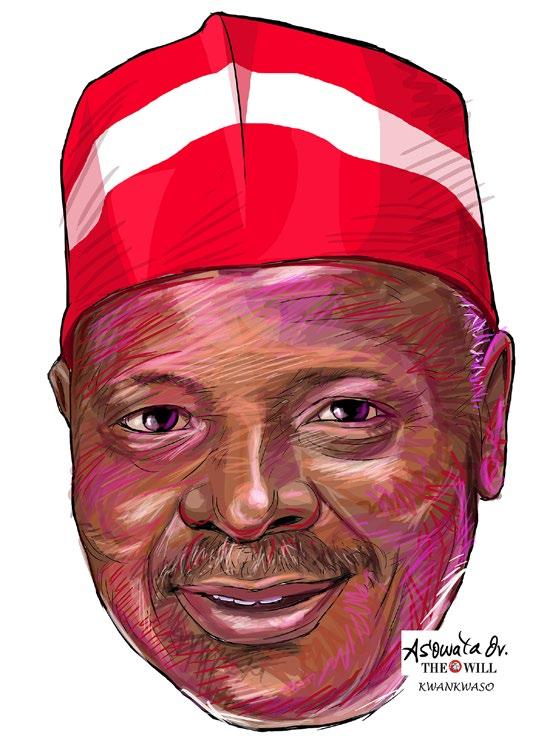
party, we have invested much, as Kwankwasiyya Movement, on integrity and most of our programs are on education. Most of our remaining supporters are educated.
“The Kwankwasiyya Movement has been able to produce 650 professors, we have 2,700 PhD holders. In our party, we don’t have unwanted people coming in.
“A committee has been set up to make things easier for contestants, anybody found wanting in character, our party will not nominate him as a candidate.
“We are even going to buy scratch cards to check the WAEC certificates presented by the candidates whether they are fake.”
However, the crisis bedevilling the NNPP deepened on Monday with the suspension of the Secretary to the State Government (SSG), Dr Abdullahi Baffa Bichi, and the state Commissioner of Transportation, Muhammad Diggol, for alleged disrespect to the party.
The crisis is reportedly a fallout of the party's recent primaries ahead of the polls, which left many aspirants alleging favouritism and improprieties in the conduct of the exercise.
The development is seen as the NNPP's first dose of crisis in the state since the party captured power during the 2023 general elections.
At a deeper level, however, the under currents driving the suspension reportedly stems from a crisis said to be brewing between the and Kwankwaso. The presidential candidate of the party in the 2023 general election is said to have directed the governor to sack two top government officials including Secretary to the State Government (SSG), Dr Abdullahi Bichi.
According to the reports, Kwankwaso is uncomfortable with Bichi’s refusal to take instructions from him in handling some of his official duties.
Reports say, sources close to the governor said Yusuf would rather have a one-to-one discussion with Kwankwaso over the issue than to act on his ‘orders’.
It further gathered that a group known as “Abba Tsaya Da Kafarka,” meaning,”Abba,Wake Up And Assert Yourself” has emerged, in support of Yusuf.
“At a deeper level, however, the under currents driving the suspension reportedly stems from a crisis said to be brewing between the and Kwankwaso. The presidential candidate of the party in the 2023 general election is said to have directed the governor to sack two top government officials including Secretary to the State Government (SSG), Dr Abdullahi Bichi
According to sources close to the group, it has become important for Yusuf to stop behaving like an errand boy.
The source said the group believed that Kwankwaso handpicked most of the government’s political office holders, including the commissioners. Members of the National Assembly on the platform of the NNPP recently met with Yusuf and urged him to assert his independence.
Similarly, Alhaji Hamisu Dumgurawa, chairman NNPP in Kano State, has announced the suspension of the SSG and Alhaji Muhammad Doggon, Commissioner for Transport from the party. He said that the two principal officers were suspended over alleged ant-party activities. When contacted Kwankwaso said he was in line with the actions of the party chairman, adding that as a loyal party man, he would not contradict the party leadership.
“I will not say anything more since the party chairman has already addressed it”, Kwakwanso said.
The Minister of Power, Adebayo Adelabu, last Wednesday said that national grid collapses are almost inevitable in Nigeria, given the deplorable state of the country’s power infrastructure.
recurring problem that the government enacted the Electricity Act in 2023. Apparently, nothing has changed since then.
The Electricity Act decentralised power in 2023 and yet nothing has practically changed for the better in the power sector.

A desperate situation needs a desperate answer. It is high time the government wields the big stick and makes the GENCOs and DISCOs to sit up. Except for three out of the 11 organisations, which have managed to show functional ability, the other eight that are failing in their duty should be resold to willing and capable entrepreneurs
Speaking in Lagos on Wednesday, at the unveiling of Hexing Livoltek, an electricity meter manufacturing company in Lekki, Adelabu said having multiple power grids in each region and state rather than a single national grid would ensure stability to avoid incessant collapse.
He noted that the decentralisation of the power sector would help the plan to build grids in each region, saying this was made possible by the Electricity Act signed by President Bola Tinubu in 2023.
Then he ended with what amounts to an anti-climax. “That is why we need a lot of investments in this infrastructure to bring them up to speed, to bring them up to the state that can give us a grid that will not collapse again.”
Sad to note that last Tuesday’s collapse is the seventh since January 2024 alone. And that the government has spent N7 trillion in subsidies to electricity generating companies, GENCOs and electricity distribution companies, GENCOs, since their privatization in 2013. This is because the government still retains a 40 per cent stake in the companies. Year in, year out, the national wattage hovers between 5,000 and 7,000 megawatts despite the funds and designs expended.
It was in the bid to get out of this
Why? Because the culture and mind set in the public agencies dealing with the power sector is still too marred in bureaucratic red tape to guarantee efficiency and sustainability in the management of the power infrastructure in the country.
That was the point in the frustration experienced by billionaire businessman, Adedeji Adeleke, father of popular musician, Davido, when he suffered pains to secure an official environmental permit for his power plant worth over $2 billion.
According to Adeleke, an unnamed government official told him that the project would never “see the light of day”. He had to go spiritual to have this awkward circumstance altered in his favour.
Meanwhile, the Afreximbank of Chinese which had advanced him credit for the 1,250 megawatt power plant, were at their wits end with bankruptcy staring them in the face as the design and other preliminary work had been done except for the environmental permit.
Apart from this kind of bureaucratic roadblock that breeds inefficiency, the other challenge is the old boy network that encourages undue favouritism and incompetence.
Talking about this recently, ex-Minister of Economic Planning, Dr Shamsudeen
Usman, disclosed that most of the 11 DisCos that were privatised in 2013 were hijacked by extremely greedy people in the Federal Government and their agents. These are the people whose inertia has kept the national wattage consistently at between the 4,000 and 5000 scandalous wattage.
They are the people that the Minister lamented about recently when he revealed how a private company held on to N32 billion paid into its account for the supply of three million prepaid meters in 2003. This blackmail, manipulation and cunning has been the bane of the power sector over the years.
A desperate situation needs a desperate answer. It is high time the government wields the big stick and makes the GENCOs and DISCOs to sit up. Except for three out of the 11 organisations, which have managed to show functional ability, the other eight that are failing in their duty should be resold to willing and capable entrepreneurs.
If former Minister of Power, Barth Nnaji could do it with his independent Geometric Power Plant in Aba, Abia State and Adeleke has fought against saboteurs in government, then, there must be other determined Nigerians who are willing to seize the opportunity and turn the sad page of power failure and grip collapse in Nigeria.
The Federal Government must ensure that the clauses in the Electricity Act that give room for independent investors, are implemented to the letter. Enough of these lamentations that serve to remind us of the wasted funds and lack of power for industrial production and creative enterprises.



CHIKE STANLEY
hief Allen Ifechukwu Onyema, the Chairman of Air Peace, stands as one of Nigeria’s most accomplished and hardworking entrepreneurs. His airline, Air Peace, has not only redefined the aviation landscape but also provided immense relief to millions of Nigerians. With determination and a vision to democratise air travel, Onyema has grown Air Peace into a dominant force that competes directly with global airlines. Yet, despite his monumental contributions to Nigeria's aviation sector, he is repeatedly subjected to scrutiny, victimisation and disparagement from foreign authorities and Western
The ongoing attack on Onyema is not just an attack on an individual but a blatant affront to the Nigerian aviation sector, which calls for urgent action
At a time when the cost of air travel was skyrocketing, seemingly without bounds, it was Air Peace that stepped in to stabilise the market. Nigerians had been at the mercy of astronomical air fares, as foreign carriers monopolise major routes. The ripple effect was devastating, limiting the capacity of the average citizen to fly and stifling the growth of the nation’s aviation
However, Air Peace, under the astute leadership of Chief Onyema, disrupted this narrative. By offering competitive pricing and expanding its domestic, regional and international reach, Air Peace provided Nigerians with an affordable and reliable alternative. The significance of this cannot be overstated—Air Peace became a symbol of healthy competition, lifting the industry and
The success of Air Peace’s international routes, including the historic commencement of flights to London’s Gatwick Airport, is a testament to its pivotal role in strengthening Nigeria's bilateral air service agreements (BASA). The landmark push by Nigeria's Honourable Minister of Aviation and Aerospace Development, Festus Keyamo SAN, to secure favourable BASA routes would not have had the same impact without the involvement of Air Peace. The airline’s presence on international routes—especially with major destinations like London—challenged long-standing monopolies and helped reduce fares that had been skyrocketing. This development not only empowered the Nigerian consumer but also marked a significant victory for local airlines in a fiercely competitive global market.
Onyema’s Air Peace is paving the way for other Nigerian airlines to capitalise on more BASA routes, unlocking a new era of international connectivity and competition. His contribution has been nothing short of revolutionary, a fact that should be celebrated rather than subjected to unwarranted attacks.
The repeated victimisation of Onyema by US authorities and the Western press, appears increasingly orchestrated, raising suspicions that it is part of a larger agenda to destabilise Nigeria's aviation sector. It is no coincidence that as Air Peace rises and disrupts the status quo, Onyema faces intensified scrutiny. This situation should raise the alarm for all Nigerians, especially those within the aviation industry.
This is not just Onyema's fight—it is a fight for the survival and autonomy of Nigeria's aviation sector.
At a time when the nation is striving to assert its place on the global stage, the attack on Air Peace, the closest entity Nigeria has to a national flag carrier, is an attack on the industry’s collective future. Let no one be mistaken— Onyema's plight is a battle for the soul of Nigerian aviation, and the fallout will affect not just Air Peace but hundreds of its employees and the broader economy.
If the authorities, regulators, and stakeholders within the aviation sector fail to rally around Onyema now, it will be a monumental loss for the country. It is a moment that demands unity, not division. The future of Nigerian aviation depends on the survival of its biggest players, and Chief Onyema, as the Vice President of the Airline Operators of Nigeria (AON), embodies the aspirations and ambitions of countless Nigerians. His downfall would be a blow not only to Air Peace but to every stakeholder who believes in the growth and competitiveness of the Nigerian aviation sector.
If I were a member of the AON, I would not sit idly while one of our most illustrious members faces such unfair persecution. The fact that Onyema has built one of the largest employers in Nigeria’s aviation industry speaks volumes about his dedication, vision, and capability. Allowing him to fall victim to external forces is tantamount to delivering a slap to the entire aviation community.
We must ask ourselves: If we do not defend our own, who will? Chief Allen Onyema’s contributions to Nigeria’s aviation industry should inspire pride, not condemnation. Air Peace is the pride of Nigeria’s aviation sector, representing our collective ambition to compete on the global stage. The airline is a symbol of our capacity to build and sustain world-class businesses that challenge global giants, providing critical services at home and abroad.
This is the time for the Nigerian Government, aviation regulators and all industry stakeholders to stand together. We must reject any agenda—whether foreign or domestic—that seeks to tarnish the achievements of one of our finest entrepreneurs. The aviation roadmap for Nigeria, painstakingly dreamt by the Minister of Aviation and Aerospace Development, Festus Keyamo SAN and being charted by Chief Onyema and others, must not be derailed by baseless accusations and targeted victimisation. Onyema and Air Peace represent the future of Nigeria's aviation industry. His plight is not just his own but a call to action for all Nigerians. The stakes have never been higher, and this is a turning point in the history of Nigerian aviation. If we do not act now, we risk allowing foreign interests to dismantle the progress we have worked so hard to achieve.
The time to eschew bitterness and rally around our own is now. Let us not allow external forces to sow division, or as the saying goes, “smear our white clothes with blood.” We must come together in defence of Onyeama and Air Peace. The survival of the Nigerian aviation industry depends on it.
BY ABDULRAZAQ HAMZAT
Gas shortage is a major problem in Nigeria’s power sector, particularly in electricity generation. A recent report by the National Electricity Regulatory Commission (NERC) says that more than 70 per cent of electricity generation companies in Nigeria rely on gas for their production and gas shortage means that these generating companies cannot function effectively. While this fact is widely acknowledged, the extent of the gas shortage and its overall impact on the sector's stability and efficiency often go unnoticed.
Recent reports highlight the dire situation facing our power sector. According to NERC, Four power plants owned by the Niger Delta Power Holding Company failed to generate electricity in the second quarter of 2024. These plants, namely Omotosho NIPP, Ihovbor NIPP, Alaoji NIPP, and Sapele GT NIPP, are parts of the National Integrated Power Project and collectively boast an installed capacity of 2,000 megawatts. Alarmingly, these facilities recorded a Plant Availability Factor (PAF) of zero during this period, unable to produce any power from April to June due to gas shortages. It is important to note that these plants didn't produce anything significant in the first quarter also, signifying a major disaster for generating companies with government involvement.
The implications of this crisis are profound and multi-faceted, significantly affecting the ability of Independent Power Producers (IPPs) to function effectively. In Q2 2024, the average PAF for all gridconnected plants was only 32.30 per cent, indicating that more than 67 per cent of the installed capacity in the Nigerian Electricity Supply Industry was unavailable. This situation translates into substantial economic losses, power supply instability, and an increased reliance on inefficient and often more expensive sources of electricity generation, such as diesel.
The failure of key power plants to generate electricity not only disrupts the supply of power but also undermines the reliability of the entire electricity grid. When IPPs cannot access the gas they need, their ability to meet consumer demand diminishes significantly. The loss of 2,000 megawatts of capacity due to the shutdown of these plants exacerbates the existing shortfall in electricity supply, leading to prolonged outages and erratic power delivery to homes and businesses. The inability of IPPs to operate due to gas shortage has far-reaching economic implications. Industries reliant on stable electricity supply experience productivity losses, leading to diminished economic output and potential job losses. In an economy already grappling with various challenges, including inflation and high unemployment rates, the impact of inadequate power supply further hampers economic growth and deters foreign investment.
As gas shortages ground the ability of IPPs to function, the reliance on alternative power sources, such as diesel generators, increases. This shift not only raises operational costs for businesses but also translates to higher electricity prices for consumers. Many households and small businesses, unable to afford the skyrocketing costs of alternative power sources, face significant financial strain. The ongoing

gas crisis also affects the maintenance and operation of existing power infrastructure. When IPPs face continuous gas shortages, they are often forced to cut back on maintenance activities, which can lead to further inefficiencies and increased downtime. A vicious cycle ensues, where the inability to generate power leads to neglected infrastructure, ultimately exacerbating the energy crisis. To better understand the challenges facing the gas sector, it is useful to compare it with the more established oil sector.
THE GAS PROBLEM IN NIGERIA'S ELECTRICITY SECTOR IS A MULTIFACETED CHALLENGE THAT REQUIRES A COMPREHENSIVE AND COORDINATED RESPONSE. THE ONGOING GAS SHORTAGE SEVERELY HINDER THE ABILITY OF INDEPENDENT POWER PRODUCERS (IPPS) TO FUNCTION, UNDERMINING THE RELIABILITY AND STABILITY OF ELECTRICITY SUPPLY ACROSS THE NATION
One of the most significant gaps between the oil and gas sectors lies in the legal framework supporting domestic obligations. The oil sector benefits from a statutory structure that enforces domestic crude obligations, ensuring that a certain percentage of crude oil is reserved for local refining and consumption. This legal backing empowers regulatory bodies to enforce compliance among oil producers, creating a more predictable supply for the domestic market. In contrast, the gas sector operates without similar legislative reinforcement. Although Nigeria's gas policy encourages investment in gas infrastructure and promotes domestic consumption, it lacks the legal teeth necessary to enforce compliance. This disparity leaves the growth and stability of the gas sector largely at the discretion of producers, who often prioritise export markets for higher returns.

In a paradox that has defined Nigeria’s electricity sector, the eleven Distribution Companies (DisCos) across the country recorded increased revenue during the second quarter of the year (Q2 2024) amid poor power supply and a growing population of estimated billings. Data conveying these facts were obtained from the National Bureau of Statistics (NBS) Electricity Report for Q2 2024. released last week.
According to the report, electricity supply during the review period (Q2 2024) was 5,612.52 Gwh from 5,769.52 Gwh in the previous quarter. Similarly, on a year-on-year basis, electricity supply decreased by 5.03 per cent, compared to 5,909.83 (Gwh) reported in Q2 2023.
Despite the poor performance in power supply, the electricity distribution firms accumulated more revenue during the period. According to the report, revenue collected by the DisCos in Q2 2024 rose to N391.72 billion from N291.62 billion in Q1 2024. On a year-on-year basis, revenue generated in the reference period also increased. It rose by 48.90 per cent from N263.08 billion recorded in Q2 2023.

The increased revenue was recorded by the DisCos who continue to feed fat on the anomaly called estimated billing which number during the quarter was 7.07 million, higher by 10.04% from 6.43 million in Q1 2024. On a year-on-year basis, estimated customers increased by 17.86 per cent in Q2 2024 from 6.00 million in Q2 2023.
Estimated billing refers to the system of arbitrary charging against unmetered electricity consumers for
EDITOR
Sam Diala
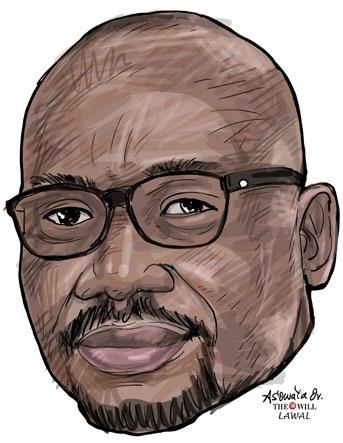
With many businesses battling for survival amid mounting economic headwinds, there are renewed expectations that Nigeria’s leading digital retail financial institution, Polaris Bank Limited, would step up its activities to salvage the crumbling informal sector largely populated by micro, small and medium enterprises (MSMEs).
The expectations stemmed from the prominent role the Tier-2 bank has played in promoting the MSME sector, the engine of the economy, for which it has been eminently recognised by stakeholders and industry experts.
At the inaugural ‘MSME Finance Awards 2024’ organised by a digital media platform and The Economic Forum in Lagos last August, Polaris emerged Nigeria’s top bank in MSME Lending. It was a notable achievement considering the emphasis the World Bank has laid on focusing on that sector to boost job creation and the people’s standard of living.
The award which highlighted Polaris Bank’s dedication to supporting MSMEs through various direct and indirect funding initiatives, was well received among stakeholders. According to reports, the judges emphasised the bank’s consistent efforts in providing sustainable finance, which has enabled Nigerian entrepreneurs to grow and expand their businesses.
“This is a welcome development. At a time the manufacturing companies are facing huge challenge in accessing foreign exchange to import raw materials and other accessories, this is the time to revisit the backward integration policy in particular with vigour,” said Engr. Dan Ikoku, owner of a grain processing outfit.
According to Engr Ikoku, the drive by Nigeria’s major developing banks – the Development Bank of Nigeria (DBN) and the Bank of Industry (BoI) – to promote MSMEs through commercial banks’ activity in MSME financing, underlines why Polaris Bank should brace for the challenge.
“It is time to embrace the backward integration policy with renewed vigour and commitment because the economy is not smiling on people

and businesses. Many businesses are shutting down, and the worst affected are the small businesses,” Ikoku said in a chat with THEWILL.
At present, job losses are on the rise as a result of the surge in petrol prices occasioned by the removal of subsidy and the devaluation of the naira mid-2023. Rising inflationary pressures in recent months (hitting 32.7 percent last September) have weakened the purchasing power of cashstrapped consumers, as businesses grapple with higher operating costs. The worst casualties are the MSMEs.
According to Abdulrasid Yarima, president/chairman of the governing council of the Nigerian Association of Small and Medium Enterprises (NASME), about 10 percent of the 40 million MSMEs in the country have shut down since the subsidy removal.
In a statement late last year, Yarima said, “It’s been very tough for our members as we are managing to survive. Some of them are closing shops while others are looking for new business opportunities.”
THEWILL findings revealed that many thriving MSMEs involved in the value chain of major manufacturing companies, under the backward integration policy, have either scaled down their operations or stopped doing business
Backward integration is a practice where companies are encouraged to cultivate their own raw materials by purchasing from their suppliers or establishing their own farms, for instance, to grow produce for their factories.
The consumer goods firms, in particular, keyed into the scheme and have since taken giant strides in its implementation. This is to the benefit of the MSMEs, especially those engaged in the agriculture and transport value chain
For instance, Nestlé Nigeria instituted a project to engage 5,000 smallholder farmers, initially, for the supply of raw materials for its agrobusiness operations. The initiative, ‘Developing Inclusive Grain Value
Continues on page 15 Continues on page 15
Chains Project’, was in partnership with IDH — a Sustainable Trade Initiative and TechoServe outfit.

At present, job losses are on the rise as a result of the surge in petrol prices occasioned by the removal of subsidy and the devaluation of the naira mid-2023
Nigerian Breweries stepped up local production of sorghum and cassava to boost local raw material supply for its plants. The 78-year-old consumer goods firm has made significant strides towards large-scale cultivation of sorghum and industrial application since the 1980s.
The projects are now severely challenged by the myriad of environmental obstacles across the states, including insecurity and poor road network, where the farms are established and the value chain is being threatened.
As a result, the companies which rely on a strong value chain that involves many micro, small and medium businesses especially in agriculture, agro-business and transportation activities are not being able to feed the manufacturing companies. This has a far-reaching impact on the economy as the manufacturing companies have to resort to other means to source their raw materials, including reverting to importation amid the forex crisis.
Additionally, due to high cost of operations, most of the manufacturing companies recorded huge losses or declined profit in their 2023 FY reports, leading to scaling down in their scope of operations which has affected the MSMEs engaged in their value chain.
A check by THEWILL showed that 10 major Nigerian manufacturing companies recorded huge inventory costs by way of raw material, inventory and packaging sourcing in six months according to their 2024 interim half-year results.
Data from their 2024 half-year reports revealed that their total inventory items namely raw materials, consumables and packaging rose by 238.2 percent to N2.2 trillion in six months from N665 billion in the corresponding period of the previous year.
Although their combined post-tax loss dropped to N581.87 billion from N665.83 billion in the previous half-year period, the impact of high cost of raw material input remained significant. This is indicative of the important role by Polaris Bank and other financial services institutions in supporting the MSMEs.
In response to the award, Polaris Bank’s Managing Director, Mr. Kayode Lawal, expressed gratitude and reaffirmed the bank’s commitment to supporting Nigerian MSMEs.
He noted, “We are honoured by this recognition, which underscores our unwavering commitment to empowering micro, small, and medium businesses. These enterprises are essential drivers of economic growth, innovation, and job creation.
“This award is a testament to our team’s dedication to providing tailored financial solutions. It further motivates us to continue our strategic focus on MSME lending, financial inclusion, and Nigeria’s broader economic development,” he added. Polaris Bank’s approach to MSME lending aligns with its mission to deliver innovative, customercentric services that help businesses thrive, further cementing its reputation as a key player in driving Nigeria’s economic progress.
Coming at a time the World Bank has advised Nigeria to boost local productivity through developing the small businesses, combined with the efforts of the major development banks – Development Bank of Nigeria (DBN) and Bank of Industry (BOI) – Polatis Bank will record a huge success in MSMEs support programme.
Specifically, the DBN was conceived to address the major financing challenges facing the MSMEs in Nigeria. Its objective is to alleviate financing constraints faced by MSMEs and small Corporates. This is achieved through partnering with the commercial banks towards provision of financing and partial credit guarantees to eligible financial intermediaries on a market-conforming and fully financially sustainable basis.

FBN Holdings Plc has officially announced the appointment of Adebowale (Wale) Oyedeji as the new Group Managing Director (GMD), effective November 13, 2024. This appointment, which is subject to the approval of the Central Bank of Nigeria and ratification by shareholders at the next Annual General Meeting (AGM), marks a new chapter for the financial institution.
Wale Oyedeji replaces Nnamdi Okonkwo, who will retire after completing his tenure.
With over 30 years of banking experience across corporate banking, treasury, and commercial banking, Oyedeji brings extensive leadership expertise to the role.
His most recent position was as Managing Director/CEO of Nova Commercial Bank, where he played a key role in the institution’s transformation and expansion into retail banking.
Oyedeji’s academic background includes a Bachelor of Science degree in Agricultural Economics from the University of Ibadan and a Master of Science in Financial Economics from the University of London.
the volume of energy they did not actually consume. The billing is based on perceived pattern of consumption, or on the ‘best of judgment’, with unjustified high revenue targets as the motive. Consumers in this system are mandated to pay far above what they consumed on a monthly basis and the charges are usually outrageous.
The fate of the increasing number of electricity consumers under the estimated billing system has become more worrying following the astronomical increase in the cost of electricity meter.
Over the years, the DisCos have blamed the shortage of meter for their inability to provide their customers with the commodity as a result of which majority of the electricity users are placed on the notorious estimated billing system. The affected consumers, in turn, accuse the DisCos for deliberately starve them of meters in order to continue their arbitrary estimated billing system.
Incidentally, the deregulation of meter pricing has led to a significant increase in meter costs, with some three-phase meters now selling at over N250,000 as against N80,000 thereby making it unaffordable to an average consumer. This has raised concerns not only about availability but also affordability, especially for consumers still subjected to estimated billing.
While energy experts agree that this move may help address the metering gap in the country, they caution that it does little to tackle the broader challenges posed by high inflation and the rising cost of living.
The Nigerian Electricity Regulatory Commission’s (NERC) move to deregulate Meter Asset Providers (MAP) was hailed as the much-needed solution to the country’s persistent metering gap crisis, but the high rate of inflation has dampened the euphoria that the arrangement created.
For millions of Nigerians, the sharp rise in metering costs from about N80,000 to over N200,000 in just one year has become as burdensome as the problem it was meant to solve: eliminating estimated billing.
The arrangement was intended to empower customers, allowing them to obtain meters from any approved vendor without relying on the DisCos. While this policy appeared commendable on paper, it has brought new challenges.
The most pressing of these is the increase in meter prices, exacerbated by the prevailing economic conditions and rising inflation. Another worrying dimension is the increase in electricity tariff under the clouded arrangement of categorizing the consumers under Bands A, B … groups which has led t higher cost of electricity amid poor supply.
THEWILL reports that the Nigerian Electricity Regulatory Commission (NERC) announced on June 21 2024, the approval of N21 billion for the 11 DisCos to provide meters for end-use customers at zero cost.
This comes on the heels of years of exploitation of electricity consumers who waited unavailingly for the supply of meters even after they had made the prescribed payments for the facility yet remained unmetered long thereafter.
Since the Federal Government introduced the metering system in 2018, it has maintained that electricity consumers face no hurdles in procuring meters. But that remains far from being the truth. The DisCos are raking in enormous revenue from poor services, while their estimated customers continue to increase and groan.
He is also a Fellow of the Institute of Chartered Accountants of Nigeria (ICAN) and an alumnus of the prestigious Advanced Management Program at Harvard Business School.
His career spans significant leadership roles, including serving as Managing Director of Guaranty Trust Bank UK between 2008 and 2011, and as an Executive Director for the Corporate Banking Group of Guaranty Trust Bank Plc.
He also held a position as an Independent NonExecutive Director at Stanbic IBTC Bank, further solidifying his expertise in the banking sector. At FBN Holdings, Oyedeji will lead the implementation of the company’s new 5-year strategic plan, overseeing operations at both the Holdco and its various subsidiaries.
Speaking on his appointment, the Group Chairman of FBN Holdings, Mr. Femi Otedola, CON, said,
“Board is pleased to welcome Wale Oyedeji to the Holdco and The looks forward to him building on the solid foundation of our 130-year-old franchise and sustaining its undisputed leadership position.”
This leadership transition is expected to enhance FBN Holdings’ long-term strategy and continue its legacy as one of Nigeria’s premier financial institutions.
Oyedeji’s appointment comes amid a year of substantial leadership changes at FBN Holdings, as the company continues to reshape its governance and strategic direction.
THEWILL recalls that billionaire businessman Femi Otedola was appointed as the new Chairman of FBN Holdings, marking the beginning of a new era for the institution. Otedola, who became the largest individual shareholder in FBN Holdings in 2021, has played a key role in reshaping the company’s leadership.
In March 2024, FBN Holdings further expanded its leadership team with the appointment of five elite directors, reinforcing its corporate governance and strategic vision under Otedola’s leadership.
These changes were part of a broader effort to stabilize the institution following years of leadership turbulence.
The report however stated that metered customers stood at 5.92 million in Q2 2024, indicating a growth of 0.25 per cent from 5.91 million recorded in the preceding quarter. On a year-on-year basis, this grew by 8.18 per cent from the figure reported in Q2 2023 which was 5.47 million. *Continues







N650, 000
N600, 000
N500, 000
N440, 000
N395, 000
N335, 000
N310, 000

N410, 000

N380, 000
N320, 000
N315, 000
N280, 000
N145, 000
N85, 000
N70, 000
N160, 000
N95, 000
N65, 000
N60, 000
N50, 000
N30, 000
N15, 000
N7, 000
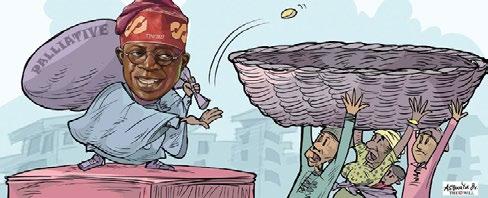












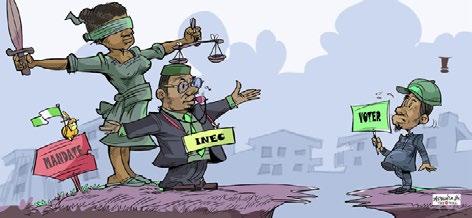










A D V E R T I S E M E N T R A T E EFFECTIVE APRIL 1, 2024
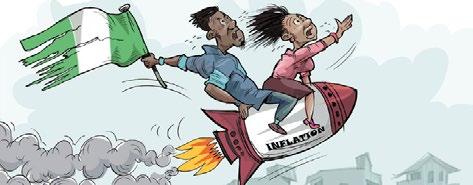


Half Page Front – N10, 000, 000
Front Page 5X6 – N5, 000, 000
Front Page Strip– 4x6 – N1, 400, 000
Front Page Strip 3x6 – N800, 000
Change of Name (Classified) N5, 000 Page/Column Branding – Negotiable


























Tochi, one of the surviving daughters of late Herbert Wigwe, the former CEO of Access Holdings, has been appointed to the board of her late father's foundation, Herbert Onyewumbu Wigwe, HOW, a non-profit organization founded in 2016 and headquartered in Lagos. HOW Foundation focuses on youth empowerment, on health, specifically malaria and prostate cancer. The foundation finances leadership and mentorship seminars with United Kingdom
Continues on page 20
WHY MIKE OZEKHOME LAUNCHED 50 BOOKS IN COMMEMORATION OF 67TH BIRTHDAY
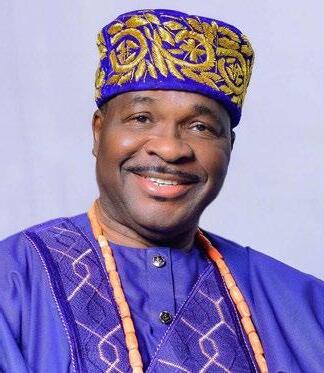
Legal luminary and constitutional lawyer, Mike Ozekhome SAN recently added another age but rather than throw a lavish party for the sake of celebrating, he chose to mark the day by launching 50 books simultaneously. The auspicious event took place at the Abuja Continental Hotel. A former chairman of the body of Benchers (BOB),
Continues on page 20

Ivory Ukonu



In this feature piece, Ivory Ukonu spotlights a few of Nigeria's power couples and how they have set a new standard for aspiring couples, showcasing the immense benefits of a solid partnership in marriage and how they managed to ascend to the big leagues

Shade Okoya's dream was to be a businesswoman able to stand on her own in matters of money. Her marriage to Chief Razaq Okoya, the founder and chairman of Eleganza Group of Companies, one of the biggest homegrown conglomerates in Nigeria with a workforce of over 2000 people, paved an expressway for her to attain her dreams and a great opportunity to unleash the innate hardworking drive that longed for practical expression in the world of business. As his youngest wife, she runs the conglomerate and is responsible for some of its rebranding efforts such as the creation of Eleganza Industrial City which is intended to increase operating capacity to meet the growing demands for its products and services. She is the managing director and chief executive officer of this new creation and has the responsibility for the day-today running of the company. She sits on the board of Eleganza Group and RAO Investment Property Company Limited, the group’s large investments in real estate. She is also in charge of Eleganza Fashion Products Limited and Eleganza Cruise & Travels Limited, the latter two, new creations under the conglomerate which has over six factories and produces a wide range of goods that are household names in Nigeria and neighbouring African markets. Shade brings in her expertise in repositioning the company and shaping a new direction for the business. Chief Rasaq and Sade constitute one power couple that impacts the length and breadth of Nigeria’s economy, creating jobs and changing lives.

No doubt, Dare and Deola Art Alade have secured their place as one of Nigeria’s power couples. Deola found fame in the hugely popular interior design industry, while her husband Darey’s launch into international limelight began with his excellent performance as a contestant on Project Fame Africa in 2004 and going on to become one of Nigeria’s leading RnB singers. The couple have gone ahead to fuse the success of their individual careers to both run one of Nigeria’s creative agencies, Livespot360 group. Darey and Deola are happy they work together because according to Darey, Deola has an eagle eye which is required in their line of business for one to see as far, wide as he can’t possibly see which helps to balance things out. In addition, they complement each other. The couple who will be celebrating their 18th wedding anniversary next month have two children who they are obviously grooming for the limelight going by how often they showcase them on their social media pages. Despite their age difference, the couple have remained steadfast and committed to their union and family.
B
enedict Peters is the CEO of Aiteo Group, the largest indigenous crude oil producer in Nigeria by output. He is also the founder of Bravura Holdings, a company with significant mining interests across Africa. A successful businessman and an innovative entrepreneur, Benedict is also a huge philanthropist and is the largest single corporate sponsor of the Nigerian Football Federation (NFF) in all of the NFF’s history. Besides giving to several charitable causes, Benedict is also a critical thinker as well and under his leadership, Aiteo and Bravura have grown to become renowned and valuable companies in Africa. His associates say he has been able to achieve these numerous milestones through hard work, his strong christian faith and the support of his wife, Ella who has stood firmly by his side at all times. Benedict considers her his strong pillar of strength. Based in the United States of America, Ella clearly dwarfs her peers in womanliness, valour and character. She is a jewelry designer, and her jewelry brand is called Jovadi. She is also the author of an international cookbook, 'Guaranteed Delicious,' inspired by her many years of travelling around the world.
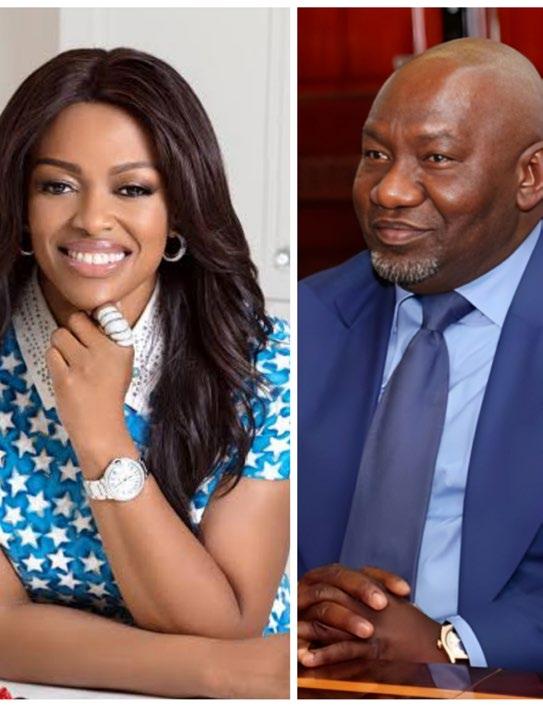
Pastor Paul Adefarasin and his wife, a former beauty queen, Ifeanyi Adefarasin are one of the leading power couples in Nigeria on account of how influential they are and based on their huge followership. They both run House on The Rock church in Lagos Nigeria with Pastor Paul as the head pastor and Pastor Ifeanyi playing a supporting role as they administer leadership roles in the church's branches in Abuja and outside the shores of the country. Pastor Ifeanyi, a former banker also runs a women's empowerment programme via her Women to Women ministry which is committed to social reformation, education, provision of healthcare and relief materials to the under privileged. She is also a mentor and coach known for her clear and practical message of hope and empowerment. She tailors her style of ministry to transcend gender barriers and bring healing to many. Under his ministry, Pastor Paul equally runs Rock Foundation, a charity-based organisation committed to social reformation and relief work for ex-convicts, drug addicts and the less privileged. Pastor Paul was led to set up their foundation following his conversion from drug addiction.




Pastor Enoh Adejare Adeboye fondly referred to as Daddy GO, an acronym for General Overseer, is one of Africa's biggest and most revered clergymen. He runs the biggest church on the continent of Africa, the Redeemed Christian Church of God, RCCG with branches in about 198 nations of the world including more than 15,000,000 worshipers in Nigeria alone. The RCCG also has an educational arm, The Redeemers University and a philanthropic arm through which the church disburses its milk of kindness. Together with his wife, Pastor Folu whom he refers to as the most consistent and resourceful woman he has ever met, they run RCCG. While Pastor Adeboye's job has remained consistent, preaching the message of salvation, his wife Pastor Foluke has helped her husband transform RCCG to the phenomenal height it has reached today. Through thick and thin, they have both endured the most torrid moments of their evangelical careers and today, they are probably the most adored and followed African couple on the planet.

Prince Clement Haastrup, a former deputy governor of Osun State, is the founder and chairman of ENL Consortium Limited. He set up the company in 2002 primarily to put in place utility management expertise to serve a need in the power sector. He has so far attained great strides in port and container terminal development with the deployment of new equipment that permit a hitch free operation at the terminal. His wife, Victoria on the other hand is the vice chairman of ENL Consortium Ltd, the brand they founded together and have built together to an enviable height. She brings into play the natural trait of the women in building the family to build the business. Victoria believes that women have a special grace that men do not have. Clement affirms that truly her aura turns things around, paving the way for securing one big contract after the other and eventually the port. The management of the port terminals is practically in the hands of Victoria. Clement concedes that she is the best hand in management, the directing mind of the business, not only in the port but in all the operations of the consortium. The unity of purpose of this power couple is visibly at work at ENL Consortium’s port terminal operation – Clement breaking new grounds and Victoria breaking the bulk to deliver stunning results in quality service delivery.
Businessman and philanthropist, Elder Eme Ekeoma is the chairman of Nepal Oil and Gas renamed Nepal Energy Limited. Despite being the founder, it is his wife, Barrister Ngozi Ekeoma that is at the forefront of running the firm as its group managing director. She oversees Nepal’s management activities and has since led the repositioning of the company towards becoming a reference point for operators in Nigeria’s downstream sector. Despite marrying her husband when she was 16 years old, she refused to allow her age or the huge age difference between her and her husband to deter her from aiming for the skies. She got educated and quickly joined her husband in the company and today, her husband couldn't be prouder with what she has achieved with the company via his guidance.

T
uesday, June 25, 2024 opened a new chapter in the love story of award-winning pop star, David Adeleke more popularly known as Davido, and his wife, Chioma nee Rowland. It was the day they both officially became one in the eyes of the public. The day further solidified Chioma's status as a 'joint partner' in Davido's music business. Although she holds no official position in his Davido Music Worldwide, DMW company, it goes without saying that Chioma is an integral part of the decision-making process of her husband's music empire. Except it is a matter of exigency, Chioma can always be found by Davido's side when he travels the world to entertain his audiences scattered across the globe or sign multi million mega deals.


While banker, investor and philanthropist, Tony Onyemaechi Elumelu is the chairman of United Bank for Africa, Transcorp Plc as well as HEIRS Holdings, a family-owned investment company, his wife Dr. Awele is the Chairperson of Avon Healthcare Limited, Nigeria’s leading health insurance provider, and Avon Medical Practice, a growing network of full-service clinics and medical centres. In addition, she is a private sector champion for immunisation in Africa by Gavi, the Vaccine Alliance. She is also a founding director of Heirs Holdings, a family-owned investment company and a co-founder of The Tony Elumelu Foundation, the philanthropic arm of Heirs Holdings, committed to empowering entrepreneurs across Africa. They are widely considered one of Nigeria's and even Africa's power couples because of their work in empowering African entrepreneurs. They aim to create a million jobs in a decade by focusing on funding for startups and entrepreneurs and contribute $10 billion in revenue to the African economy by the end of their 10-year programme. The current number of beneficiaries stands at 7,520 across all 54 African countries. Dr. Awele equally serves as the Chairperson of Heirs Insurance Brokers, the brokerage arm of Heirs Insurance Group, a subsidiary of Heirs Holdings.
Politician and philanthropist, Ned Nwoko, a senator representing Delta North senatorial district in the Nigerian Senate and his youngest wife, Nollywood actress are one of Nigeria's power couples. Despite their huge age difference and the fact that she isn't only Ned's wife, their romantic Chemistry appears to defy gravity. They never pass on any chance to openly profess their love for each other. Regina claims she agreed to marry Ned out of love and not for money. She also admitted that she always referred to him as her kid. Although both are successful in their individual endeavours, they are also supportive of each other's careers. While Ned fully funds all of Regina's movie projects, Regina in turn finds time to support her husband as the social secretary of the senator’s wives association of Nigeria.



STORIES BY IVORY UKONU


and the Tinubus
Socialite and beauty entrepreneur, Freda Francis, is no longer lurking behind the shadows as the baby mama and mistress to Seyi Tinubu, son of President Bola Ahmed Tinubu. Freda, who in the past avoided anything that could possibly link her with Seyi, has decided to step out of her shadows. All had been quiet on both the Tinubus' turf and that of Freda until the latter decided to publicly send well wishes to Seyi on the occasion of his 39th birthday writing, "Happy birthday Oluwaseyi Afolabi KING OF BOYS. May this year bring you as much joy and fulfillment as you bring to those around you. Here's to more milestones, achievements and moments of joy in the year ahead. We love you."
Irked by the indignation, Layal, Seyi's wife who had always maintained a dignified silence since her husband and Freda's entanglement, responded to Freda's post with a simple sentence, ' You can't compete where you don't compare.' This was accompanied with a video of her dancing with her husband on his birthday outside the shores of the country.
Not one to back down and obviously ready for a showdown, Freda who runs an upscale spa, Oasis Medspa followed up by allegedly posting a video on how best one should respond to disrespect. In other words, she was alleging that Layal's post was a disrespect to her, considering that she is an OG before Instagram, meaning, an original gangster before the introduction of Instagram who had made a name for herself on the social scene before Instagram. Perhaps, Layal took that as a cue not to bandy words with her and is yet to respond to the video. Things have however quietened down on all fronts, at least for now.
Continued from page 18

Recall that about two years ago, trouble had reared its head in Seyi's home when Layal allegedly moved out of their matrimonial home, unfollowed him on social media and deleted all pictures of him on her social media page. The bone of contention was allegedly Freda. There were allegations that Seyi hooked up again with Freda after she bore him his first son, Alexander and allegedly knocked her up a second time. It was about the same time Freda kept busy with the burial arrangements for her late mum who had passed on. Seyi immediately denied that his wife had moved out and that all was well at the home front, even when it was glaring that all wasn't well. On Christmas day of that year and the year after, they both did not post loved up pictures of themselves together as is their custom, instead they each posted pictures of their children on their individual social media pages to wish their followers a Merry Christmas. Also, when Layal unveiled the second outlet of her children's toy shop and learning space, Tots Toys, Seyi refused to congratulate her. The day which also coincided with her birthday, went by as normal as he also did not wish her a happy birthday. Similarly in the months leading up to the 2023 Presidential Election, Layal, still hurting, allegedly refused to openly identify with her father inlaw's presidential ambition. A cursory look at her social media page at that time showed no sign of her promoting his political ambition or of her congratulating him when he was declared presidentelect. But on the day of the inauguration, the couple put their differences aside to attend the inauguration of the President. Things remained peaceful until Freda's birthday message.
Chief Wole Olanipekun, SAN reviewed the 50 books. The book all expressed deep concerns about the state of the judiciary and its impact on the country’s political landscape. Some of the dignitaries at the event were former Presidents Olusegun Obasanjo and Goodluck Jonathan, both of who co-chaired the event; former first lady Patience Jonathan; presidential candidate of the Labour Party, Peter Obi; former governor of Ogun State, Olusegun Osoba; Senator Shehu Sani; Obinna Iyiegbu aka Obi Cubana and many others. A human rights activist, professor Ozekhome has dedicated his life to the advancement of justice, human rights advocacy, and the pursuit of democracy and good governance in Nigeria. A titled chief, the Akpakpa Vighi Vighi of Edoland, the launch of the 50 books has further solidified his legacy as a thought leader, mentor, and defender of democratic values.

During the week, the Ooni Olofin Adimula of Ile-Ife, Kabiyesi, his imperial majesty Oba Adeyeye Babatunde Enitan Ogunwusi Ojaja II his Imperial Majesty, Oba Enitan Ogunwusi clocked 50 and expectedly, the day did not go by without celebrations and fanfare. Recall that penultimate week, THEWILL had reported the Ooni's intentions to celebrate the landmark age by leaving indelible marks on the sands of time.
Although, spiritually and traditionally, the Ooni isn't supposed to celebrate his birthday except, perhaps, the annual celebration of the anniversary of his enthronement, but as an avowed exponent of mixing tradition, the traditional ruler found a way around this cultural complexity.
First, the highly resourceful king ensured he launched about 50 different projects in commemoration of the milestone cutting across all sectors of the economy - from education to health services to youth empowerment/intervention and the likes. This continued unabated even on the D-day proper, Thursday October 17th. The Ooni got the governor of Osun State, Ademola Adeleke to commission both the community cinemas in Ile Ife, his domain and the groundbreaking of the Ojaja Film City at Ile Ife Grand Resort and Industrial Park, Osun State. The celebration for the milestone birthday proper took place on his palace grounds. There were over eight humongous cakes on display, including one that was the exact replica of his throne which was designed to rotate. All the cakes depicted something significant and traditional about the culture he represents. The Ooni also got two car gifts: a black Toyota Land Cruiser and a white brand-new Multi-Purpose Vehicle (MPV) from GAC. Very important personalities from far and near gathered to celebrate with him. From his fellow traditional rulers to businessmen and women to politicians to actors and actresses etc. all of who couldn't help but display their happiness on the auspicious occasion while gyrating to the beats of King Sunny Ade's songs and Tolu Obey, son of juju music maestro, Chief Ebenezer Obey.
Continued from page 18
based motivational speaker Joshua Ajitena for students in government secondary schools, and awards prizes and scholarships to top students. The foundation is also a major sponsor of God's Children Great Talent, an annual gospel-focused talent contest for children and young people organized by the City of David parish of the Redeemed Christian Church of God, RCCG, where he worshiped until his death.
Tochi who holds a master’s degree in Innovation, Entrepreneurship, and Management from Imperial College Business School, London, and a bachelor’s degree in social and Cultural Analysis from New York University (NYU) is expected to bring her wealth of expertise
in strategic management and social entrepreneurship to bear on the foundation. Her career has been driven by a passion for developing transformative solutions that bridge the public and private sectors, making her a perfect fit for the foundation’s goals of youth empowerment, education, and healthcare. Her ability to forge strategic partnerships and deliver impactful programs will be instrumental in expanding the foundation’s reach and amplifying its mission. Tochi who comes across as very courageous, intelligent and bold will no doubt make her late parents proud as she joins to steer the ship of the foundation which owns the Wigwe University to its next level.

Dr Pearl Chidinma Ogbulu, the Erelu Okin of Orile Okemta popularly referred to as Erelu Petrol, a moniker she got for sharing petrol as souvenir at her chieftaincy installation party, has expanded her business frontiers to include
real estate. Her real estate firm based in Abuja is into tasteful building of town houses, terrace apartments and flats. A first-class graduate of Economics from the Federal University of Technology, Owerri, Imo State, Erelu Petrol not only runs an oil and gas firm, Pearl Hydro, she also owns a bridal atelier, La Pearl’s Bridal, considered one of the best bridal dress makers in Nigeria. About two years ago, she was honoured with the citizenship of New Jersey by the Mayor of Newark, Nas J. Baraka for her humanitarian efforts channeled through educational projects for school children, assistance towards widows, orphans and differently abled people in the society. This also made her an honouree of the United States Congressional award. She also has an honorary doctorate from the European American University.
Photo Editor: Peace Udugba [08033050729]
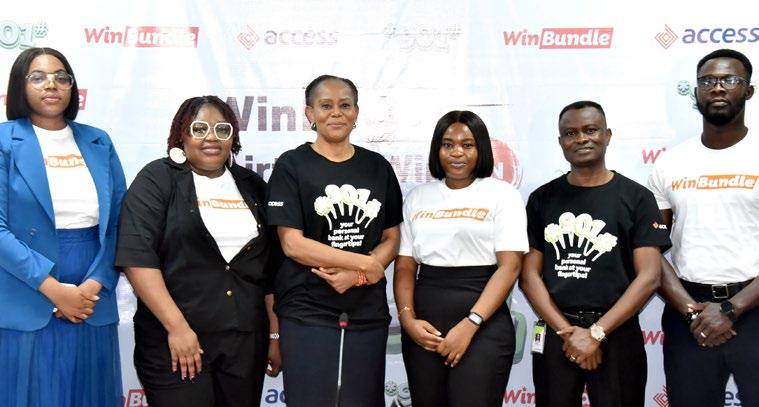
L-R: VP Business Development and Expansion, Saltingstein, Simi Daphne Adeoye; Chief Marketing Officer, Saltingstein, Chinny Nwokedi; Group Head, Consumer Banking, Access Bank, Njideka Esomeju; Chief commercial officer, Saltingstein, Stella Oshorinde; Group, Head, Digital Channels, Access Bank, Oluremi Gabriel and Francis Ogbasu Project Lead, Saltingstein, at the Access Bank and Saltingstein media roundtable to launch WingBig with Airtime2Win on *901# in Lagos, recently.

L-R: Founder, School of Grant Success and Judge, Incubation Hub Competition, Edward Esene; Chief Executive Officer, West Africa Vocational Education (WAVE) and Judge, Incubation Hub Competition, Molade Adeniyi; Board Chair, Teach For Nigeria, Kunle Elebute; Winner, Teach For Nigeria's 2024 Incubation Hub Pitch Competition, Odike Collins; Operations Manager, Oando Foundation and Judge, Incubation Hub Competition,Tracy Akpofure; Chief Executive Officer, Teach for Nigeria, Ayodele Olajiga; Founder, KEY Academy and Judge, Incubation Hub Competition, Damilola Okonkwo, during the 4th edition of the Teach For Nigeria Incubation Hub Pitch Competition in partnership with Oando Foundation, held in Lagos recently.
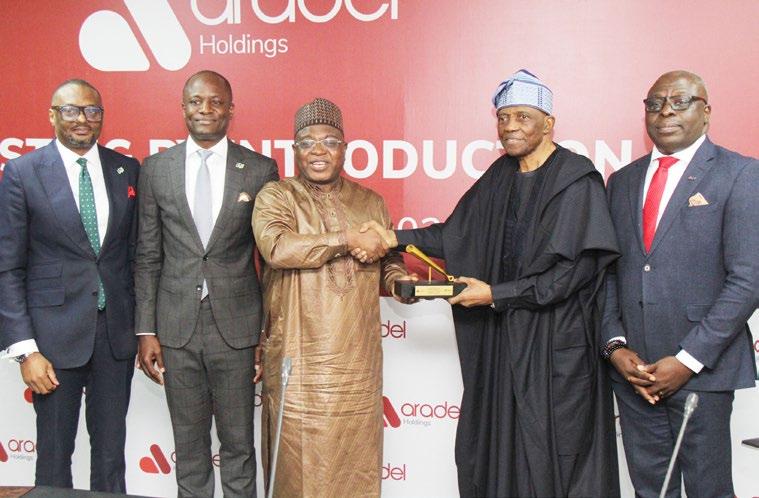

L-R: Deputy Representative, UNICEF Nigeria, Rownak Khan; UNICEF Deputy Executive Director, Partnerships, Kitty van der Heijden; Senior Vice President and Chief Corporate Services Officer, IHS Nigeria, Dapo Otunla; Director, Sustainability, IHS Nigeria, Titilope Oguntuga; Chief of Field Office and Chief Generation Unlimited (GenU 9JA), UNICEF Nigeria, Celine Lafoucriere and Director, Government & External Relations, IHS Nigeria, Gimba Mohammed, during a courtesy visit by UNICEF to IHS Nigeria’s corporate headquarters in Lagos on October 17, 2024.
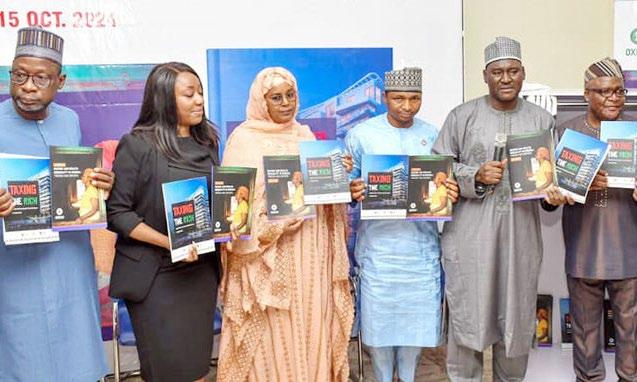
on NGX today in

L-R: Executive Director of Care International, Hussaini Abdul; Senior Officer, Nigeria Program, Natural Resource Governance Institute (NRGI), Tengi Okoli; Regional Director of Oxfam International, Assalama Sidi; Executive Director, Connected Development (CODE), Hamzat Lawal; Executive Director of Civil Society Legislative Advocacy Centre (CISLAC), Auwal Musa-Rafsanjani and the Country Director, Oxfam International, John Makina, during the news conference on Trends and Divers Fair Tax Monitor and Wealth Taxation and the unveiling of Oxfam’s report on Income and Wealth Inequality in Abuja, Nigeria on October 15, 2024.
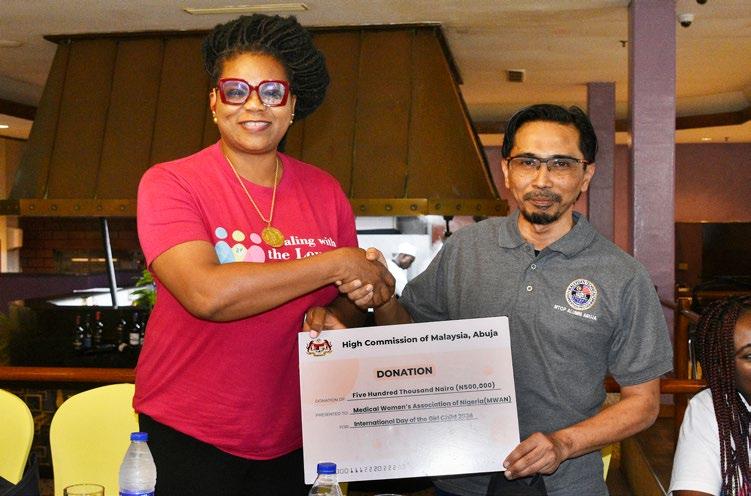
Commissioner




BY JUDE OBAFEMI
The recent boycott of an Africa Cup of Nations (AFCON) qualifier match between Libya and Nigeria has created significant disruption in the qualifying series for next year's tournament in Morocco. The Super Eagles refused to play their scheduled match in Libya after the mistreatment they endured in the host country's airport, prompting an investigation by the Confederation of African Football (CAF) and leading to the fixture's postponement.
The incident began with the
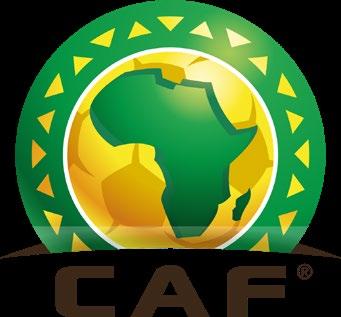
This incident brings to light several important issues in African football
Nigerian team's arrival in Libya for their return leg AFCON qualifier. The chartered ValueJet of the Super Eagles was unexpectedly diverted from Benghazi to Al Abraq International Airport, over two hours from the original destination. The Nigerian delegation then endured a challenging experience, stranded at the airport for more than 15 hours without access to basic necessities like food, water, or proper rest facilities.
Super Eagles captain William Troost-Ekong shared details of the situation on social media. He described the team being left in an "abandoned airport" without phone connections or adequate provisions. Images from the captain's post showed how the players resorted to sleeping on airport benches or floors, raising concerns about their readiness for the upcoming match.
The Nigerian Football Federation (NFF) swiftly condemned the treatment of their national team. NFF officials reported that local authorities failed to provide transport or assistance, forcing them to seek alternative arrangements. The situation escalated to a diplomatic issue, with the Nigerian Government getting involved. Nigerian Minister of Sports Development, Senator John Enoh, described the incident as "deeply disturbing and completely unacceptable," stating that it violated international sporting protocols and principles of hospitality.
In the light of these events, the Super Eagles decided to boycott the match. They cited concerns over their safety and the inadequate conditions they faced. This decision was not made lightly, given the potential consequences for Nigeria's AFCON qualifying campaign and possible sanctions from CAF.

The Libyan Football Federation (LFF) denied accusations of deliberate interference or sabotage. In an official statement, the LFF attributed the issues to routine air traffic control protocols, security checks and logistical challenges. They emphasised that such incidents can occur due to standard airport procedures worldwide and are not uncommon in international air travel. They also alluded to the fact that their own team encountered a similar experience in Nigeria.
Facedwiththiscomplexsituation,theConfederation of African Football has decided to postpone the match pending a thorough investigation. CAF has requested answers from both the Libyan and Nigerian football federations, setting a deadline of


October 20 for the submission of all relevant documents related to the incident.
The decision to postpone rather than immediately award a forfeit or reschedule the match shows CAF's commitment to a fair and thorough fact-finding process. However, this also creates challenges for the tournament schedule and could significantly impact both teams' qualification campaigns.
CAF now faces several options in resolving this dispute. They might consider rescheduling the fixture at a neutral venue to ensure both teams compete under fair conditions. This would require careful planning to find a suitable date within both Nigeria's and Libya's schedules as they prepare for AFCON 2025.
Another possibility is that CAF could award the points to Libya, viewing Nigeria's withdrawal as a forfeit under CAF rules. This outcome would boost Libya's standing, as they currently occupy the bottom position in their group with just one point. Both nations could potentially face sanctions from CAF. Nigeria might incur fines or point deductions for failing to fulfill their fixture. Libya, on the other hand, could face punishment for their inability to provide adequate logistical support for the visiting team.
The outcome of this investigation and subsequent decision will have far-reaching implications for African football. It will establish a precedent for handling similar incidents in the future and could influence teams' willingness to travel to certain countries for international fixtures.
